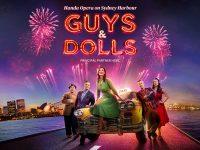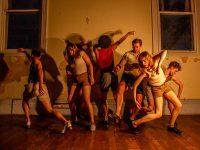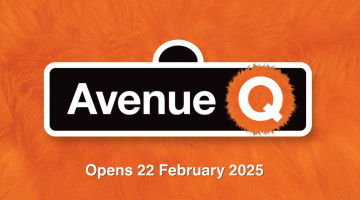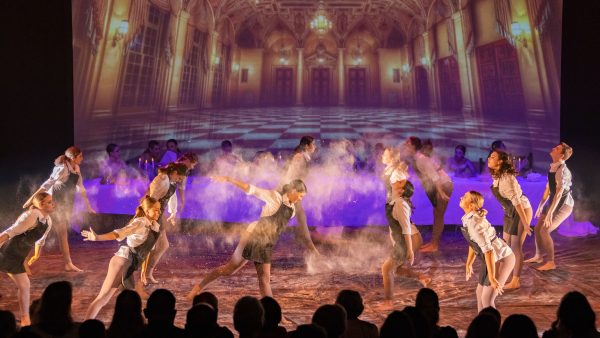
Merge Dance Theatre Explores the Five Human Senses
Judith Wright Arts Centre, Brisbane, Sunday September 5
Reviewed by Krysti Blumsom
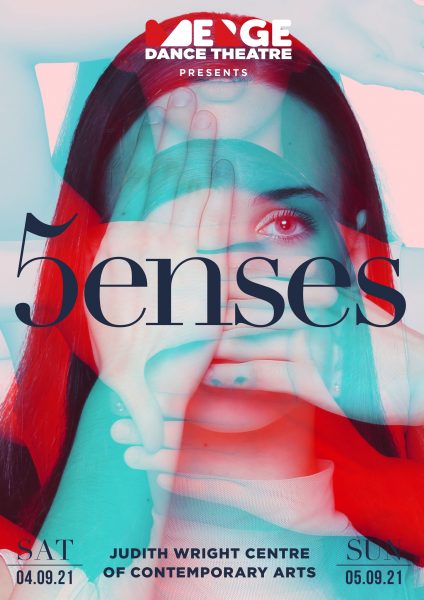
Merge Dance Theatre’s latest annual production from its youth company members production is 5ENSES (Five Senses). 5ENSES opened with the sense of ‘sound’, in a dramatic scene filled with strong choreography and movements. Dancers wearing burgundy shirt dresses filled the stage where they inhaled and exhaled loudly through dance, while incorporating simple yet effective arm movements and sharp accents. The introduction of incredible group formations was displayed where dancers also used the use of sound through their feet, creating a heartbeat sound which captivated the audience. The use of clapping and shouting by the dancers throughout one of the dramatic scenes, with intense earth drumming music, had me immersed and on the edge of my seat.
As dancers left the stage the backdrop changed to a large rose, with lighting ensuring that the focus was on the introduction of a new sense – ‘smell‘. The intensity of the production immediately changed with the music changing to a ticking clock, followed by young talented dancers wearing flowing white dresses with pink flowers gracing the stage. Beautiful soft music filled the auditorium while dancers displayed lovely ballet and lyrical technique in their contemporary movements. Use of long lines in the legs and the arms of the dancers were on display and ballet extensions including elegant arabesques were shown. Dancers ended this scene each holding up a single flower in unison, flowing back and forth in one fluid movement and reaching out to the audience.
The stage was then plunged into darkness where the burgundy adorned dancers returned to the scene, being captivated by the use of ‘smell’. It seemed that the young dancers in the white flowing dresses were introducing the sense of ‘smell’ to the burgundy dressed dancers and they were intoxicated by this new experience; surprised and amazed at the power of this sense. Once again, the dancers worked together to create combined movements, using simple yet effective choreography to convey their love of this new sense.
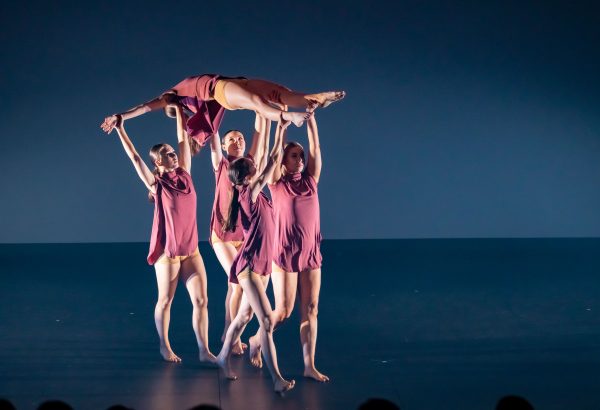
The sense of ‘sight‘ was introduced with a beautiful, large iris on display on the backdrop with half of the burgundy dressed dancers in blindfolds, while the others were left able to see. Sad music filled the scene, conveying the sadness of the loss of sight, while the dancers with the sense of sight assisted the scared and struggling blind dancers across the stage. Stunning group formations and the use of cannons in the choreography created beautiful shapes and dynamics within the dance, mesmerising the audience with the artistry displayed by the talented Artistic Director, Deanna Castellana. Props were introduced in the form of mirrors where the dancers performed in front of them, with cannons elongating the stage and light being reflected in different directions.
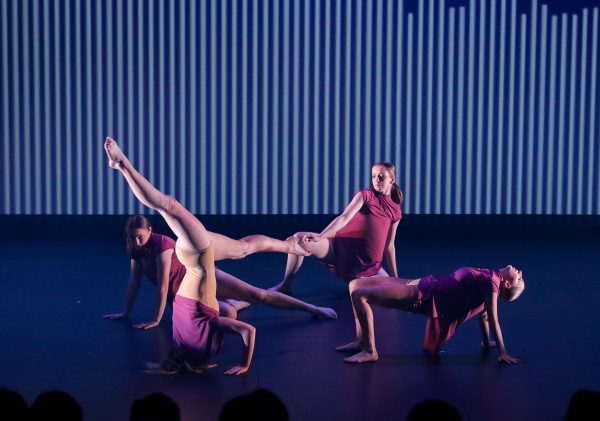
Darkness once again filled the stage with the backdrop filling with the sight of an old building, introducing a new sense, the tense of ‘touch‘. A single voice filled the auditorium explaining the importance of ‘touch’ during infancy and the disastrous consequences of not having touch present in one’s life. This is demonstrated by depicting children in orphanages ion the early 1900s. Children dressed as orphans then filled the stage, dressed in white clothing and tartan aprons. As the children danced, the single voice echoed throughout giving the audience a history of the sense of ‘touch’ and how intervention in the orphanage of volunteers for only 30 minutes a day was able to reverse the effects of long term touch deprivation in children under the age of two. The dancers portrayed the use of touch throughout their dance, affirming the biological need of touch as the core desire of human bonds. Clear plastic sheeting was incorporated into the dance, where single dancers were trapped in the plastic, reaching out to other dancers to touch them, with the scene ending in two dancers being along in the plastic reaching out to each other in touch.
Next, as the performers exited the stage, the backdrop changing to a question – which sense would you choose? Pre-recorded interviews of the dancers’ choices were then presented to the audience, with humour being injected into the production.
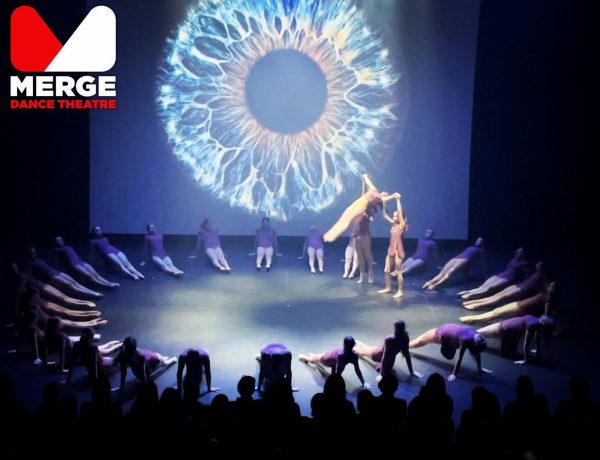 To complete the last of the human five senses – ‘taste’ – the backdrop changed to a large dining hall, where a large horizontal table filled the back of the stage across the backdrop. Dancers dressed as bakers with white clothing and black aprons entered the scene to sharp violin music, tossing flour from their aprons onto the stage as they danced. The dark lighting, combined with the tossing of the dough into the air, created a visually aesthetic scene while other dancers placed candelabras onto the large table, in readiness for the white corseted dancers who appeared onto stage for their dinner.
To complete the last of the human five senses – ‘taste’ – the backdrop changed to a large dining hall, where a large horizontal table filled the back of the stage across the backdrop. Dancers dressed as bakers with white clothing and black aprons entered the scene to sharp violin music, tossing flour from their aprons onto the stage as they danced. The dark lighting, combined with the tossing of the dough into the air, created a visually aesthetic scene while other dancers placed candelabras onto the large table, in readiness for the white corseted dancers who appeared onto stage for their dinner.
As the audience was taken back into time for this stunning dinner scene, the use of humour was used as forks were stolen between the dancers at the dining table. The apron wearing dancers entertained the diners who seemed to be enjoying their night; however, disastrously one of the diners began to choke and, in a dramatic scene, fell into the middle of the stage unconscious. The bakers then ensued in a struggle, blaming one another, before a theatrical flour fight ensued between the bakers and the diners, filling the stage with flour and laughs from the audience. All the performers then left the stage in the anger at one another, leaving the one dancer who appeared to be lifeless on stage.
However, all was not what it seemed, and once the stage was clear she woke up with a mischievous grin and walked from the stage, ending this marvellous production interpreting the five human senses of sound, smell, sight, touch and taste.

